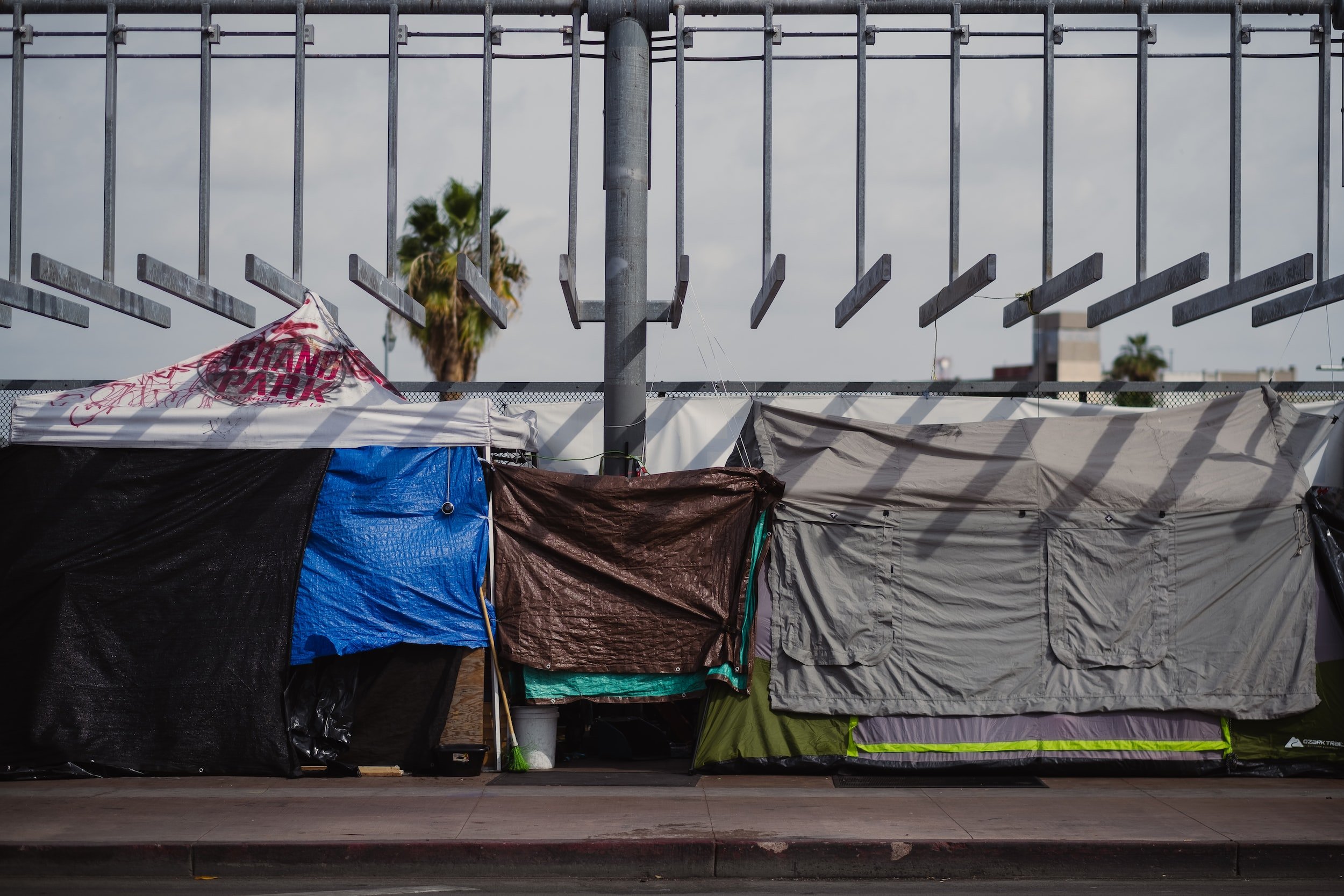
Political Underrepresentation Among Public Benefits Recipients
In November 2020, all eyes were on Pennsylvania in the lead-up to the hotly-contested presidential election. Four years prior, Donald Trump had carried the state by under 45,000 votes, out of more than six million ballots cast. Given its pivotal position as a presidential swing state, campaigns and grassroots groups blanketed the state to register and then turn out people to vote. Turnout in that election broke modern records.
But one key group of eligible voters was underrepresented among the record-high electorate: people receiving means-tested public benefits. Studying voter registration and voting in a large county in Pennsylvania, we found that people enrolled in means-tested public benefits programs register to vote and vote much less often than non-recipients.

Towards a Measure of Local Legislative Professionalism
Local legislatures are not, on average, poorly resourced institutions that are staffed by citizen legislatures, nor are they professional bodies more akin to Congress. Instead, much like state legislatures, they tend to fall somewhere in the middle, with most municipalities taking on some characteristics of each type. In the end, we hope this measure will help scholars and practitioners of urban politics better understand how institutional structures, like professionalism affect outcomes.

Using the Urban Regime Framework to Learn from Urban Challenges
In recent decades, developments related to globalization, immigration, the emergence of the post-industrial city, climate change, and the environment have posed challenges for cities all over the world. Scientists try to make sense of these developments and help cities cope with them. An increasingly appealing framework employed to understand and explain these challenges falls under the broad heading of “urban governance.”

The Emergence of Environmental Justice in General Plans
Urban planning has an uneasy relationship with environmental justice. Poor planning decisions and discriminatory practices have historically heightened the burdens of environmental contamination in low-income neighborhoods and communities of color, in comparison to white, wealthy populations. Since the 1980s, activists have garnered some regulatory and scholarly support for changes to policy and planning processes, but urban planners have been slow to adopt an explicit EJ framework in land use policies. The planning profession, however, has the capacity to help ensure that future development does not repeat the unjust environmental outcomes of the past.

Producing and Contesting Meanings of Participation in Planning
When Sherry Arnstein published the seminal article “A Ladder of Citizen Participation” in 1969, she conceptualized participation in terms of varying rungs of power – the power to make planning decisions. In her worldview, participation was inherently political. Today, public participation is part and parcel of many planning and development processes and can be used in conflicting ways, subverting existing power structures and relations in some instances, while affirming them in others. The question then is, what does it mean to “participate”? What and whose objectives and interests does participation serve? What are the democratic principles guiding participation?

The Echoes of Echo Park
Despite continued growth in unsheltered homelessness during the COVID-19 pandemic, policymakers continue to implement and enforce quality-of-life ordinances that criminalize the everyday spatial practices of houseless people. These laws are enforced through police sweeps and target necessary life-sustaining tactics associated with one’s status as unhoused, including camping, loitering, panhandling, and cooking food on public sidewalks and in parks. Their material impacts can be illustrated by expanding anti-homeless strategies like the March 24, 2021 displacement of an autonomous encampment in Echo Park Lake, which resulted in the displacement of 193 individuals and demolition of a community kitchen, garden, and semi-permanent structures, as well as the February 14th, 2023 demolition of a woman’s do-it-yourself semi-permanent structure in Skid Row.

“I Can’t Vote if I Don’t Leave My Apartment”
Black women are more likely to be victims of violence than any other group. As a result, research has consistently shown that Black women who experience violence encounter a number of negative outcomes (in physiological health, incarceration, happiness, educational, psycho-emotional wellness, and even the economic), in their present and futures. As a student of politics, I wanted to understand whether firsthand experiences of violence impact the politics and political identity development of Black women. Since research has found Black women living in poverty to be the more vulnerable to violence, I focus on my analysis on adult Black women who live under the poverty-line in Chicago public housing, and have firsthand experiences with residential violence

From Rejection to Legitimation
In April 2021, the City of Portland, Oregon legalized sanctioned, self-managed houseless encampments. It did so in a very pedestrian manner, by amending its land use ordinances that regulate houseless camping in order to make encampments amenable with the city code. This is a big deal! Currently, the regulatory responses by municipalities experiencing high numbers of unsheltered houselessness is quite varied.

Why Political Scientists Should Study Smaller Cities
The United Nations estimates more than half of the global population currently lives in cities, and 68% of the world’s population is projected to live in urban areas by 2050 (United Nations 2018). A large portion of this growing urban population lives outside of major metropolitan areas. Yet much of our knowledge about urban politics comes from studying the largest cities, and smaller cities are systematically understudied relative to their share of the population.

The Role of Women in Local Governments
In recent years, the reduction of available resources, increased debt and the decentralisation of services have placed many governments in precarious situations. If we focus on the local public sector, municipalities are increasingly challenged to present balanced budgets without raising taxes or reducing vital services for their citizens. Thus, it is essential for local governments (LGs) to provide their services in the most efficient way, which would allow them to provide more services with fewer resources or the same services at a lower cost. The term “efficiency” refers to the level of performance of an organization (Farrell 1957). It represents the level of output that can be obtained by a level of input, in comparison with the optimal combination input-output.

Understanding the Adoption and Implementation of Body-Worn Cameras among U.S. Local Police Departments
Police use of deadly force against racial minority residents is a major concern of U.S. policing. The several high-profile police-involved deaths of racial minority residents, such as the death of Michael Brown in Ferguson and the death of Eric Garner in New York City, along with the acquittal of police officers involved in those incidents, led to minority residents’ riots and looting in protest of police brutality. These incidents and the resulting public outcry brought major national debate on officers’ discriminatory treatment toward Black people and pressured the governments to devise a way to control officers’ discretionary decision to use of deadly force.

Political Consequences of the Endangered Local Watchdog
The prolonged and ongoing struggle of city newspapers to stay afloat and maintain full newsrooms made us curious about potential fallout for local politics. Our new article in UAR leverages 20 years of data to examine the relationship between newspaper staffing cuts and measures of political competition and voter engagement in mayoral elections.

Culture Wars and City Politics, Revisited
The so-called ‘culture wars’ – conflicts between progressives and conservatives over morality, values and identity – are often considered purely national in scope. When James Davison Hunter first popularized the concept in the early 1990s, he had in mind a clear vision of an all-encompassing conflict between the forces of orthodoxy and progressivism over the ‘meaning of America’. Yet the fiercest manifestations of culture war conflicts very often occur in localities, turning ostensibly national debates into issues that cities and towns have to deal with. Indeed, recent events – the murder of George Floyd, Black Lives Matter protests, the COVID-19 pandemic – have only served to underscore the increasingly localized dimensions of culture war skirmishes and the challenges they present for local and municipal governance.

Characterizing the Non-linear Relationship Between Capacity and Collaboration in Urban Energy and Climate Initiatives
In the wake of the United States’ initiation of its formal withdrawal from the Paris Climate Agreement, the continued commitment of city governments is serving, for some, as a beacon of hope. However, although there are many examples of cities achieving significant reductions in their greenhouse gas emissions, individual local governments cannot generate the necessary scale of changes alone. The emphasis that both scholarly and practitioner-focused studies place on understanding the dynamics that facilitate successful inter-jurisdictional and inter-organizational collaborations around local climate and energy objectives reflect this recognition.

The Urban Turn in Comparative Politics
In this post, UAR Co-Editor Yue Zhang shares her article that was originally published in the Spring 2020 newsletter of The Organized Section In Comparative Politics of the American Political Science Association (APSA).

The City in International Political Conflict
In this time of increased hostility and competition among groups defined by ethnic, religious, and nationalistic identity, I contribute to our understanding of fractured cities and nations in my UAR article, “National Policy Agendas Encounter the City: Complexities of Political-Spatial Implementation”. In examining two urban areas of enduring and deep inter-group violence, I reveal the contentious relationship that exists between the national political realm of policy agenda setting and the urban realm of implementation. I focus on the city and its role in perpetuating or attenuating inter-group conflict. I concentrate on how urban dynamics are both shaped by national political goals and capable of disrupting the implementation of these national programmes.

Intermunicipal Cooperation in Metropolitan Regions in Brazil and Mexico
Metropolises, not states, are the ones capable of saving the world from its most pernicious problems. This common theme is frequently present in the rhetoric of multi-national organizations echoed in newspapers’ headlines. Clearly, cities and metropolitan regions have advantages over other levels of governments in terms of their proximity and policy tools to face problems such as water shortage, waste management, human security, housing, urban mobility, among others. For most countries, especially in the developing world, these topics present formidable challenges into reaching sustainable models of livelihood due to the lack of intermunicipal cooperation. The real question is whether metropolitan regions are actually capable of cooperating to address these and other problems independent to the surrounding institutional context.

Ethno-Racial Appeals and the Production of Political Capital
Donald Trump’s election has renewed our attention to the use of racial appeals in electoral campaigning. Among other things, Trump infamously referred to Latino immigrants as “bad hombres,” murderers, and rapists. Since then, numerous candidates have followed his lead. In the 2018 campaign for the Florida governorship, for example, the Republican candidate Ron DeSantis called on voters not to “monkey this up” by voting for the Democratic candidate Andrew Gillum, the African-American mayor of Tallahassee. For social scientists, Trump and DeSantis’s appeals are remarkable because they are so blunt and explicit.

Recidivism and Neighborhood Governance
Prisoner re-entry and recidivism pose significant challenges for many of our most economically disadvantaged neighborhoods. Ex-offenders face such disadvantages as weakened family and social relationships, outdated skills, stigma in the labor market, and psychological trauma from prison experience. The social isolation and economic vulnerability that ex-offenders face spills over into their neighborhoods, reinforcing neighborhood poverty and weakening local social institutions. At the same time, neighborhood poverty and other forms of disadvantage create barriers to successful re-entry and make it more likely that an ex-prisoner will re-offend. These findings lead many researchers to conclude that cycles of incarceration and re-entry reinforce neighborhood disadvantage in many communities.

Right Cause, Wrong Method?
There is widespread agreement among educational stakeholders on the urgency of school improvement. Educational actors ranging from policymakers, educators, parents to non-profit organizations and corporations insist that the public school system has failed too many underprivileged children and improving struggling schools is a central challenge in public education.